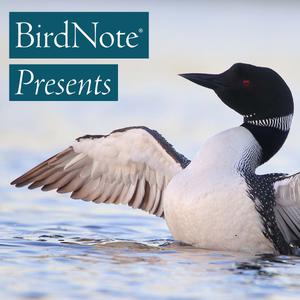
BirdNote Presents
BirdNote
Stories that connect us more deeply with birds, nature, and each other.
- 1 minute 2 secondsAn Update on BirdNote Presents
Hey BirdNote Presents listeners! A quick update on this podcast feed:
- Sound Escapes now has its own podcast feed!
- BirdNote Presents is mostly an archive — to hear the latest stories from BirdNote on our other podcasts:
Thanks for listening to our stories! 🦜🐓🦢🦩🕊🦚🦉🦅🦆
18 November 2021, 9:56 pm - 9 minutes 53 secondsPoetry Month: Heid E. Erdrich
Heid E. Erdrich is the author of seven collections of poetry. Her writing has won fellowships and awards from the National Poetry Series, Native Arts and Cultures Foundation, McKnight Foundation, Minnesota State Arts Board, Bush Foundation, Loft Literary Center, First People’s Fund, and other honors.
Erdrich has twice won a Minnesota Book Award for poetry. Heid edited the 2018 anthology New Poets of Native Nations from Graywolf Press. Her forthcoming poetry collection is Little Big Bully, Penguin Editions, out Oct. 6th, 2020. Heid grew up in Wahpeton, North Dakota and is Ojibwe enrolled at Turtle Mountain. Read along with the poems below as you listen to the episode.
30 April 2021, 4:45 pm - 9 minutes 7 secondsPoetry Month: Timothy Steele
Timothy Steele is an American poet who has received numerous awards and honors for his poetry, including a Lavan Younger Poets Award, the Los Angeles PEN Center Award for Poetry, a Guggenheim Fellowship, and the Robert Fitzgerald Award for Excellence in the Study of Prosody. He has taught at Stanford University and the University of California in Santa Barbara and Los Angeles. Since 1987, he has been a professor of English at California State University, Los Angeles.
Stele is known for his love of rhyme, meter, and traditional forms of poetry. He loves birds, and has had a number of poems inspired by encounters with them. Read along with the poems below as you hear them in the episode:
23 April 2021, 9:00 am - 8 minutes 46 secondsPoetry Month: Traci Brimhall
A native of Minnesota, Traci Brimhall is an Associate Professor and Director of Creative Writing at Kansas State University. Her first published collection, Rookery, features many poems about birds.
“Birds just seem to have a kind of spiritual or symbolic weight,” Traci explains. “They feel somehow ancient or ethereal – timeless in a way, and I think poets are often attracted to things that have that sort of feeling.”
But her interest in birds began with a common bird, the Red-winged Blackbird. “Perhaps that's part of the greatness of common things,” she says. “They’re so accessible, so ever-present.”
You can read along with the poems featured in the episode on our website.
9 April 2021, 10:07 am - 9 minutes 54 secondsPoetry Month: Wendy S. Walters
Wendy S. Walters is a non-fiction writer and poet, who holds a MFA/PHD in Poetry and Literature from Cornell University. She is the former Associate Dean of Art and Design History and Theory at Parsons, The New School. Currently she serves as Director of the Nonfiction Concentration and Associate Professor of Writing, Nonfiction in the School of the Arts at Columbia University.
While Walters was living in L.A. during the early 2000s, she wrote a chapbook, or short collection of poems, about the city called The Birds of Los Angeles. A number of themes are woven through the collection, including the Iraq War, trying to make sense of images, how we treat the things and people we love, and the birds that caught her attention.
- Prophet as Slow Bird
- Hollywood Finches
- Either I Watch a War on TV
2 April 2021, 10:00 am - 33 minutesGrouse: Bonus Guest Episode: The Spotted Owl
This episode we're sharing "Timber Wars," from OPB. The show explores the fight over old growth forests in the Pacific Northwest. And at the center of that fight was… a bird! The spotted owl became a lightning rod and a symbol of the divisions between timber interests and environmentalists back in the 90s. And there are some interesting parallels between the spotted owl and the greater sage-grouse and the fights it has sparked in sagebrush country, today. This is the third episode of the series, you can find the rest by searching "Timber Wars" wherever you get your podcasts.
20 November 2020, 2:00 pm - 1 minute 56 secondsIntroducing Threatened
A new podcast from BirdNote about about the enduring connections between birds, people and landscapes. Join host Ari Daniel for an escape to the natural world — and a glimpse into the lives of the people working to protect it.
17 November 2020, 11:00 am - 27 minutes 23 secondsGrouse: If Not Hope, Then Courage
In the final episode of Grouse, Ashley returns to a lek in Washington with biologist Michael Schroeder and finds it scorched by recent wildfire. Michael cries as he looks out over an area that was once home to one of the largest remaining pockets of sage-grouse in the state. But he says he’s not ready to retire yet — there’s more work to be done. We’re all looking for hope right now, but Ashley says what we really need is the courage to keep fighting, loving and dancing, as the sage-grouse have shown us. We may not be able to save this bird, but that doesn’t mean we can’t cherish it and do our small part — whatever that may be — to try to keep these birds around.
27 October 2020, 9:00 am - 22 minutes 25 secondsGrouse: The Death of Compromise?
Back in 2015, the Obama Administration hammered out a deal with leaders and land managers across the west that avoided listing the Greater Sage-Grouse under the Endangered Species Act. It was a grand compromise that protected key sage-grouse habitat while allowing for continued access to sagebrush country for a diverse set of stakeholders, from ranchers and energy developers to recreational users. There were pats on the back and photo opps with folks in cowboy hats next to folks in Patagonia. And yet sage-grouse populations continue declining. Compromise makes us humans feel good, but does the sage-grouse have time for it?
20 October 2020, 9:00 am - 19 minutes 40 secondsGrouse: Oil and Gas
Western Wyoming is home to many sage-grouse mating and nesting sites. And, in recent years, it’s also become a hub of oil and gas extraction. Matt Holloran knows this all too well. He did his PhD - back in 2000 - on sage-grouse and how natural gas drilling affects them, and has been studying the birds ever since. Ashley Ahearn heads to oil and gas country to visit a lek with Matt Holloran, and interview Paul Ulrich, VP of Jonah Energy, who says there’s “more work to be done” and it will involve bringing people together to look for shared solutions to keep sage-grouse around.
13 October 2020, 9:30 am - 21 minutes 2 secondsGrouse: The Story of the Grieving Woman and the Sage-Grouse
The Greater Sage-Grouse appears in the the songs, stories and dances of many Indigenous Peoples of the West. In this episode of Grouse, Wilson Wewa, an elder of the Northern Paiute of the Warm Springs Reservation in Oregon, remembers the first time he encountered a sage-grouse lek as a child. He also shares an ancient story from the Wasco Nation about a grieving woman who finds solace among the sage hens. We are losing these birds, Wilson says, but they can still provide important lessons about hope and joy in a world that is short on both.
6 October 2020, 9:30 am - More Episodes? Get the App
Your feedback is valuable to us. Should you encounter any bugs, glitches, lack of functionality or other problems, please email us on [email protected] or join Moon.FM Telegram Group where you can talk directly to the dev team who are happy to answer any queries.
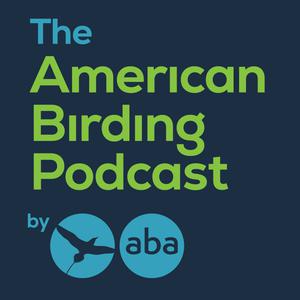 The American Birding Podcast
The American Birding Podcast
 American Hysteria
American Hysteria
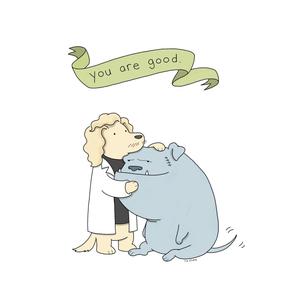 You Are Good
You Are Good
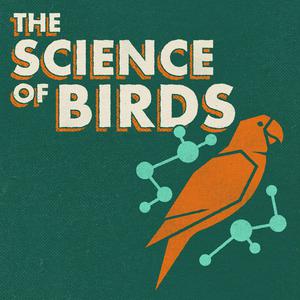 The Science of Birds
The Science of Birds
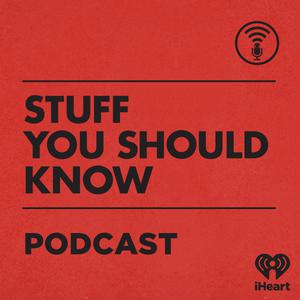 Stuff You Should Know
Stuff You Should Know
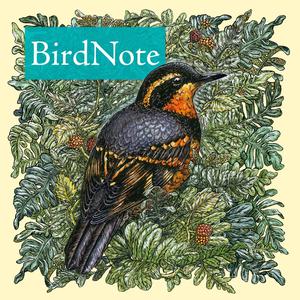 BirdNote Daily
BirdNote Daily